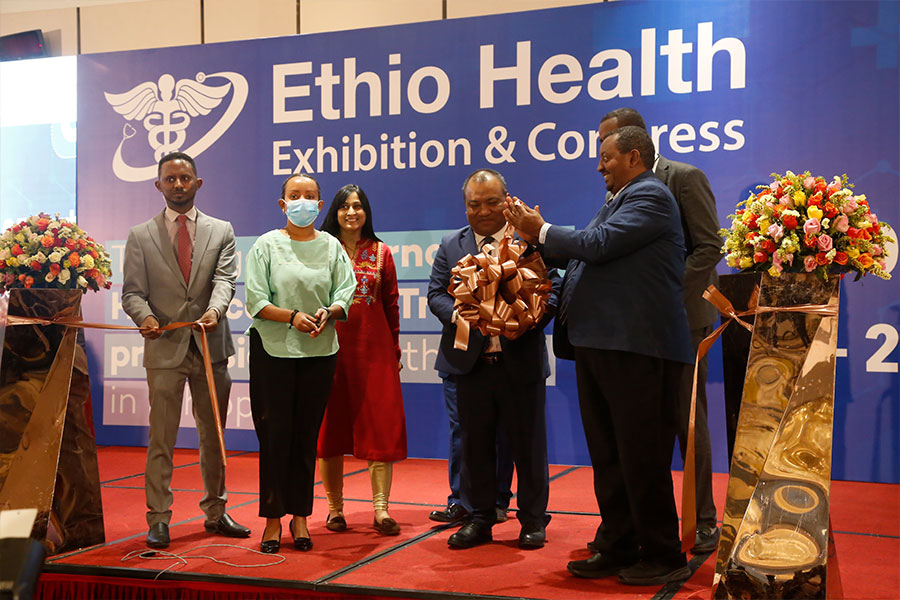
Ethiopia is facing a growing public health crisis of Acute Watery Diarrhoea (AWD), with a Menelik II Referral Hospital treatment centre admitting over 160 cases in the last two months. Despite the surge in patients with symptoms consistent with AWD, no official outbreak has been declared in the city. This lack of recognition is causing concern among physicians who believe public awareness is essential to managing patient flow and curbing the spread of the disease. While no cases have been confirmed in Addis Abeba, cholera has become a concern, with the UN Office for the Coordination of Humanitarian Affairs (UN-OCHA) reporting 15,685 confirmed cases and 189 deaths since August of the previous year. The rapid loss of fluids can lead to severe dehydration, electrolyte imbalances, and hypovolemic shock, potentially proving fatal if left untreated.
Healthcare providers also deal with significant challenges, including a lack of equipment, shared medical equipment, and a critical shortage of personal protection equipment (PPE). These difficulties compound the struggle to deal with the influx of patients and maintain other critical clinical procedures. The AWD outbreak highlights Ethiopia's underlying socioeconomic issues. UNICEF data suggest that 60pc to 80pc of the country's health problems arise due to unsafe water supplies, unhygienic conditions, and poor waste disposal. The burden of AWD is heavy on those with limited resources, such as a mother in Minelik Hospital who worries about the affordability of her child's daily laboratory tests.
Experts urge the government to focus on public health measures. Mesfin Wossen, a public health emergency management coordinator at EPHI, has championed an awareness campaign on the dangers of AWD. Over four million doses of oral vaccines have been deployed in hotspot areas, providing water, sanitary products, and hygiene education. However, Adamu Addissie, an epidemiologist at Addis Abeba University, believes that declaring an outbreak would lead to better information dissemination on preventive measures, potentially decreasing the threat level. With a significant population density, Addis Abeba could face a substantial outbreak if preventive measures are not swiftly implemented. This situation underlines the necessity of focusing on public health threats, prioritising health over the fear of tainting the city's image.
You can read the full story here
PUBLISHED ON
Aug 05,2023 [ VOL
24 , NO
1214]

Fortune News | Jul 30,2022

Fortune News | Apr 12,2020

Fineline | Apr 12,2020

Radar | Mar 05,2022

Fortune News | Jul 18,2020

Commentaries | Oct 21,2023

Commentaries | May 18,2019

Radar | Apr 21,2024

Commentaries | Oct 03,2024

Fortune News | Jan 01,2023

Dec 22 , 2024 . By TIZITA SHEWAFERAW
Charged with transforming colossal state-owned enterprises into modern and competitiv...

Aug 18 , 2024 . By AKSAH ITALO
Although predictable Yonas Zerihun's job in the ride-hailing service is not immune to...

Jul 28 , 2024 . By TIZITA SHEWAFERAW
Unhabitual, perhaps too many, Samuel Gebreyohannes, 38, used to occasionally enjoy a couple of beers at breakfast. However, he recently swit...

Jul 13 , 2024 . By AKSAH ITALO
Investors who rely on tractors, trucks, and field vehicles for commuting, transporting commodities, and f...

Jun 28 , 2025
Meseret Damtie, the assertive auditor general, has never been shy about naming names...

Jun 21 , 2025
A well-worn adage says, “Budget is not destiny, but it is direction.” Examining t...

Jun 14 , 2025
Yet again, the Horn of Africa is bracing for trouble. A region already frayed by wars...

Jun 7 , 2025
Few promises shine brighter in Addis Abeba than the pledge of a roof for every family...